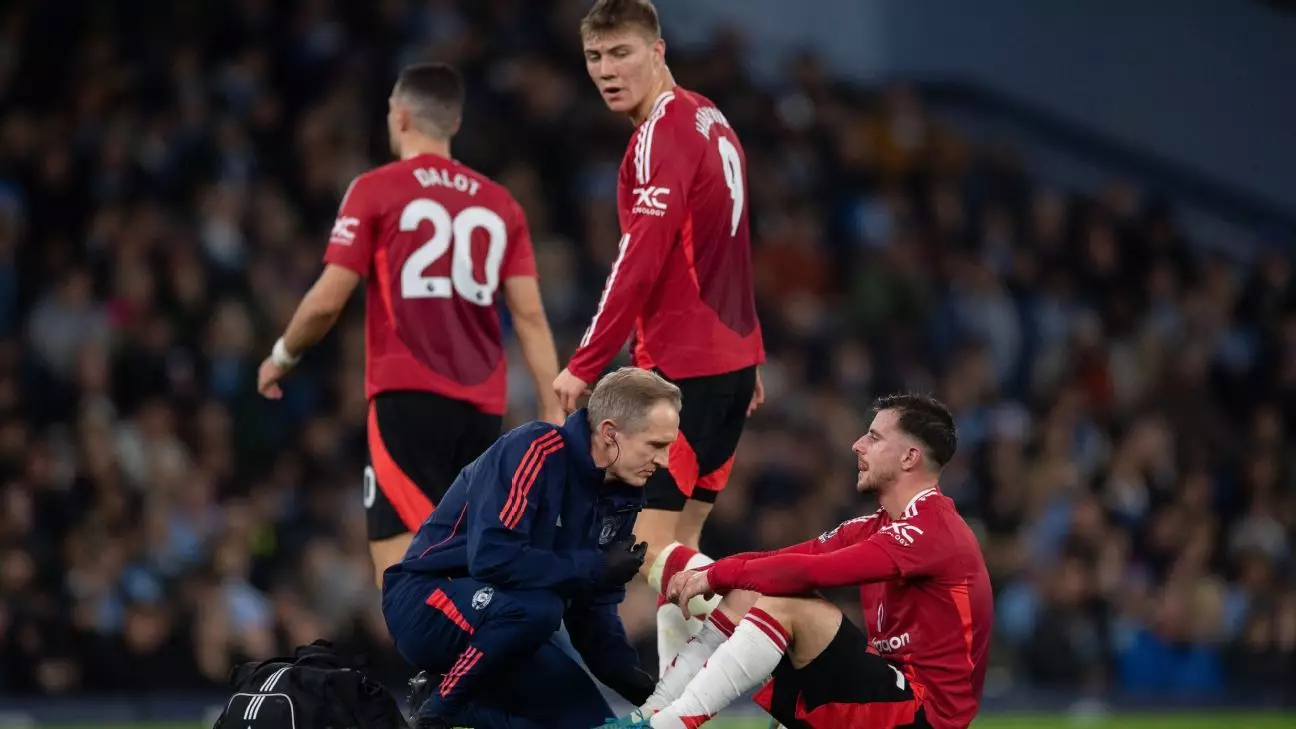Manchester United’s recent victory over Manchester City has been overshadowed by news of Mason Mount’s injury, which is set to sideline the midfielder for an extended period. Mount’s untimely exit from the match just 14 minutes in marks yet another setback in his career with the club. Over the span of 18 months at Old Trafford, Mount has faced considerable difficulty in maintaining fitness, having completed a full game only once—a troubling statistic for a player of his caliber. Following an assessment with a specialist, head coach Ruben Amorim disclosed the dire prognosis, indicating that Mount will miss several weeks of action.
This recurring injury issue raises questions about the club’s training methods and player management. Mount, at just 25 years old, should ideally be in the prime of his career, yet he has not been able to showcase his talent consistently on the pitch. Amorim’s acknowledgment of the mental toll that extended injuries can take on a player reflects a deeper problem within the team’s framework—what can be done to better support and rehabilitate athletes who are pivotal to the team’s success? The inability to provide adequate time for training and the continuous cycle of injury may hinder not only Mount’s development but also the overall performance of the squad.
The Situation with Marcus Rashford
Compounding United’s woes is the ongoing situation with star forward Marcus Rashford, who has reportedly expressed a desire to seek new opportunities. His absence from recent matches has sparked speculation about his future at the club. Amorim’s recent remarks about Rashford’s omission reveal that his exclusion was based on training performance rather than the interview where Rashford discussed wanting a “new challenge.” This underscores a critical aspect of team dynamics—how communication and external pressures can influence player morale and cohesion.
Amorim’s job becomes increasingly complex as he navigates both the physical and psychological obstacles presented by his players. Keeping talent like Rashford engaged while addressing his performance level is a balancing act fraught with challenges. As he prepares for the upcoming match against Bournemouth, Amorim’s decision will likely have repercussions, not only for Rashford’s future but also for team morale as they strive to secure crucial points in the league.
Strategies for Recovery and Cohesion
To forge a path forward, United must consider implementing robust recovery strategies for injured players like Mount while simultaneously addressing the concerns of players like Rashford. Effective communication, coupled with tailored rehabilitation programs, can ease the physical and mental burdens that often accompany injuries. This multifaceted approach not only focuses on the physical recovery of the player but also fosters psychological resilience.
As the current season progresses, Manchester United faces the daunting task of restoring its strength while managing a roster riddled with injuries and uncertainty. The management’s ability to adapt and respond to these challenges will be crucial in determining the outcome of their campaign. The resilience of their players, both on and off the pitch, will be put to the test, as Amorim aims to navigate these turbulent waters and bring the squad back into contention for silverware.
While injuries and personal disagreements pose significant challenges, they also provide a chance for growth and re-evaluation for both players and management alike. The coming weeks will be pivotal in defining the team’s character moving forward.

